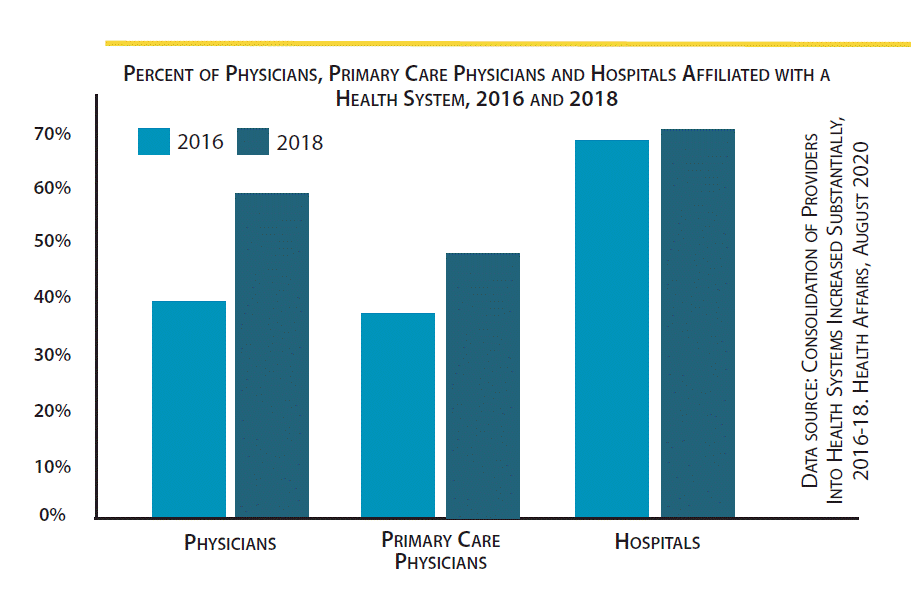More Than Half of All Doctors Are Employed by Health Systems

Consolidation of physicians and hospitals into health systems increased substantially from 2016 to 2018, according to a study conducted by the U.S. Agency for Healthcare Research & Quality (AHRQ) and published in the August 2020 edition of Health Affairs.
The study found that 51% of U.S. physicians were affiliated with health systems in 2018, compared with 40% in 2016. During the same period, the share of primary care physicians affiliated with health systems increased from 38% to 49%.
While the number of physicians vertically integrated within a health system exploded between 2016 and 2018, the growth in hospitals horizontally affiliated with systems increased modestly, from 70% to 72%.
For inclusion in the study, a health system was required to have at least one nonfederal general acute care hospital, 50 or more physicians and 10 or more primary care physicians. By this definition, the authors identified 637 qualified health systems in 2018, up from 626 in 2016.
For comparative purposes, the authors limited their analysis to the 556 health systems that qualified in both 2016 and 2018. Changes in sample size are attributed to mergers and acquisitions as well as new health systems meeting the study’s sample requirements. Of 50 mergers and acquisitions that occurred between 2016 and 2018, most involved smaller systems, with only a few hospitals being acquired by larger systems.
The size of health systems — quantified by number of employed physicians — also increased significantly between 2016 and 2018. The median number of physicians employed by a health system grew by 29%, from 285 to 369; the specialty with the largest median increase for health systems was primary care, experiencing a 32% bump, from 106 to 140, between 2016 and 2018. For-profit and church-operated systems showed the largest increases in system size.
Data on health systems and system hospitals came from the 2016 and 2018 versions of AHRQ’s Compendium of U.S. Health Systems. The compendium is a publicly available database with information about health systems operating in the United States, including system size, ownership type and linkages to system hospitals. Researchers identified system-affiliated physicians, including primary care physicians, using extracts from the 2016 IMS Healthcare Organization Services and 2018 IQVIA OneKey databases.



